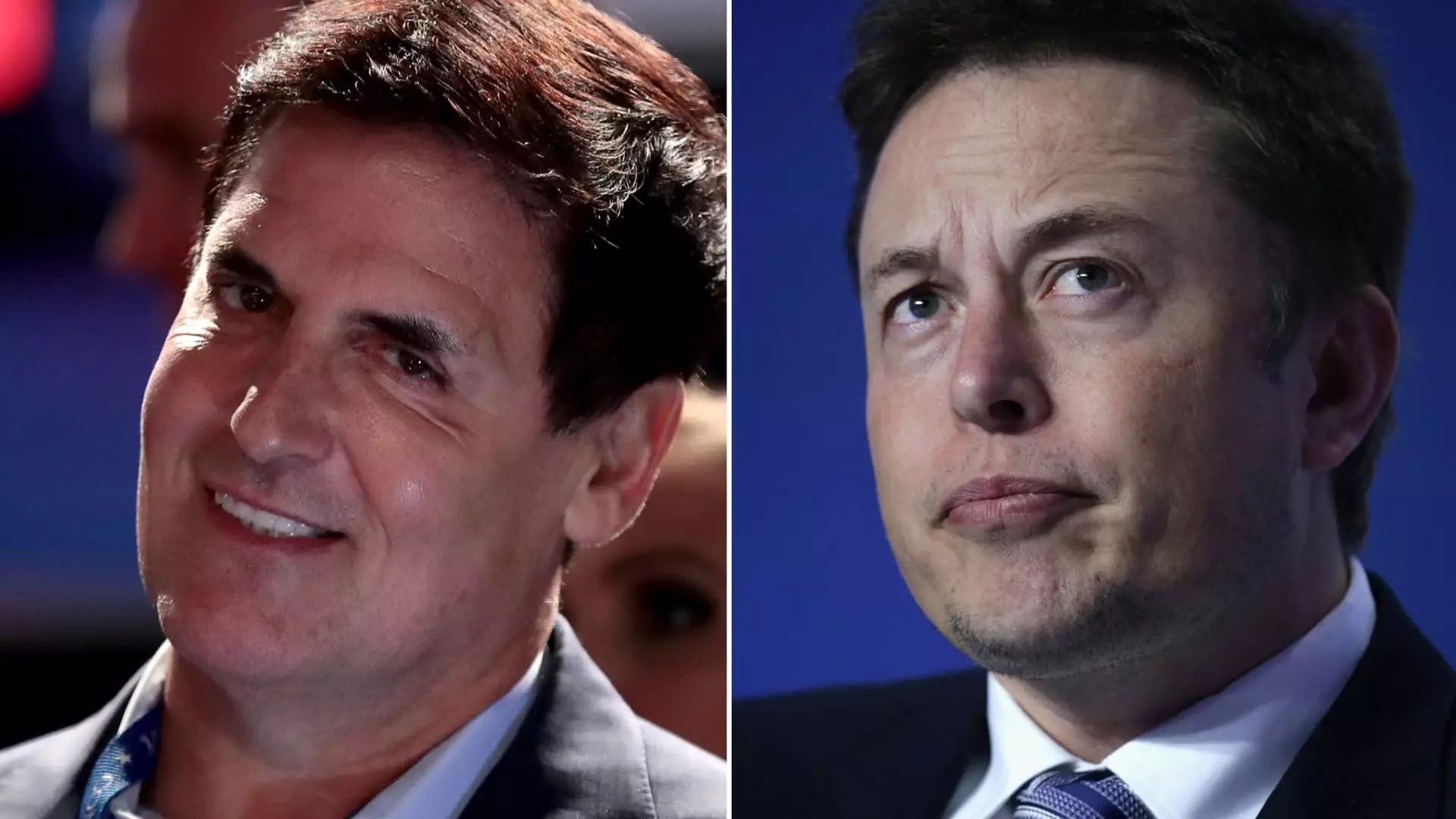In the complex world of politics and business, strategic alliances can make or break reputations, careers, and even fortunes. A recent discourse between billionaire investors Mark Cuban and Elon Musk has shed light on this dynamic, particularly focusing on the perceived risks linked to aligning with controversial political figures. Cuban’s cautionary remarks regarding Musk’s emerging alliance with former President Donald Trump illuminate deeper truths about loyalty, reciprocity, and the often transactional nature of political support.
The Dynamics of Political Support
Recently, Mark Cuban took to social media to send a stark warning to Elon Musk about his newfound support for the former president. Cuban emphasized that while loyalty may be perceived as a cornerstone of political relationships, those who believe in it too rigidly often end up disappointed. He cautioned Musk that, at a crucial moment, when he might need Trump’s backing the most, he could discover that the former president’s allegiance is self-serving. This moment of revelation is not merely a personal epiphany; it reflects a broader pattern that has been observed among numerous political figures previously allied with Trump. The implication is clear: loyalty in politics is often contingent upon convenience rather than enduring friendship.
Cuban’s warning is emblematic of the realpolitik mindset that permeates the spheres of both business and politics. In his post, Cuban echoed the sentiment that political loyalty is not reciprocal, emphasizing that historical precedents demonstrate this recurring theme. His assertion is supported by a slew of events in political history, where individuals who believed they had established strong ties found themselves cast aside when their needs clashed with the interests of those in power.
Musk’s recent endorsement of Trump stands in stark contrast to his previous criticisms of the former president. Just last year, Musk openly criticized Trump in social media posts, which raises questions about his current motivations. Has Musk’s shift in allegiance merely been a tactical decision aimed at aligning himself with a figure he perceives as wielding considerable political power? Or does it reflect a deeper shift in Musk’s own political beliefs?
Musk’s strong assertions on social media about election dynamics and conspiracy theories surrounding immigration reveal a willingness to engage in the divisive narratives that often characterize Trump’s political strategy. By embracing such rhetoric, Musk positions himself on a provocative side of the political spectrum, fueling debates about the influence of corporate leaders in political discourse.
The Stakes for Business Leaders
Given the stakes involved, both Cuban and Musk are navigating particularly tumultuous waters in this election cycle. Cuban has increasingly positioned himself as an advocate for Vice President Kamala Harris and her economic policies, which stand in opposition to Trump’s approach. His commitment to raising corporate tax rates highlights a significant philosophical difference between the two camps. This has not only forged a path of opposition for Cuban but may also position him for potential roles in a future administration—specifically, speculation around a role at the Securities and Exchange Commission (SEC).
Conversely, Musk’s ambitions appear to center on enhancing efficiency in government operations, an endeavor he believes will benefit the economy. His visions of leading a government efficiency commission under a Trump administration reveal his willingness to engage with the political establishment, but they also raise questions about the ethical implications of such a position. Can a business mogul effectively manage government affairs without compromising either enterprise or governance?
Cuban’s warnings serve as a reminder to all who tread the fine line between business interests and political affiliations. Following the evolving political landscapes comes with its own risks, especially for those whose legacies are intertwined with public perceptions. The dynamics between Musk and Trump echo a key lesson about political engagements: they are always rife with unpredictability and can lead to unforeseen consequences.
Cuban’s cautionary post offers a potent reflection on the essential nature of loyalty in politics. As political landscapes continue to shift, both Musk and his contemporaries, including Cuban, must navigate their alliances with shrewdness and caution, lest they find themselves on the wrong side of a political gamble. The intertwining of business and politics may promise great rewards, but it also requires an acute awareness of each player’s motivations and the delicate balance of power that governs these sometimes precarious relationships.



Leave a Reply